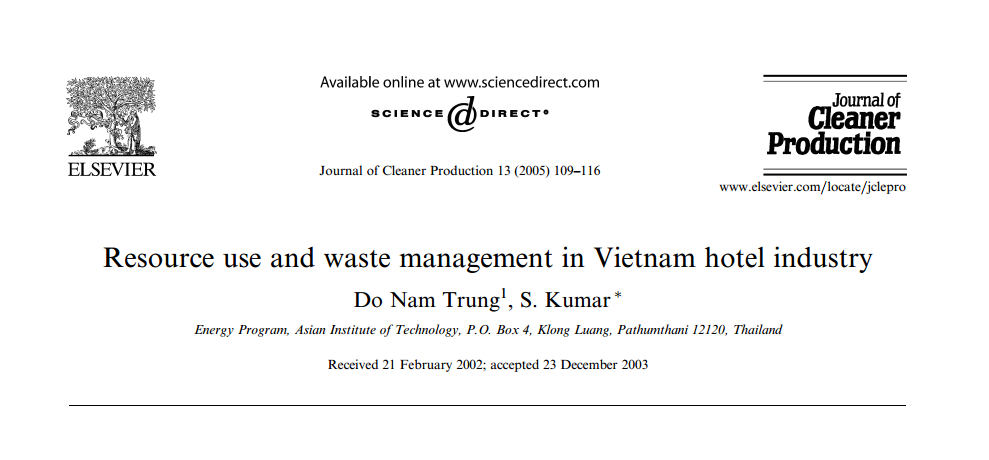
2005 | Elsevier
The hotel industry of Vietnam is expanding rapidly with increasing international arrivals and domestic tourists. At the same time, mounting costs of resources and impacts of waste could affect the income, environmental performance and public image of the hotel sector. The hotel industry resource management (energy and water) would contribute to the long-term sustainability of the tourism sector. This paper reports the results of a study conducted to assess the resource use and management in the hotel industry in Vietnam. This was obtained by carrying out a survey in 50 hotels on energy and water consumption, and waste generation. The energy and water use, as well as the waste generated in the various hotel categories have been estimated and compared with those in other countries. The current practices in the hotels to address these issues are highlighted, and benchmarks for efficient use of resources in Vietnamese hotels are presented.
These guidelines aim to provide a framework for preventing recycling-related plastic and pellet losses, and environmental leakage. The guidelines are useful for a broad spectrum of stakeholders, particularly policymakers and key plastic recycling actors, including informal waste pickers, junkshops, consolidators, and plastic recycling craft villages. The application of these guidelines is expected to contribute to improving production efficiency in the plastic recycling chain while preventing plastic leakage into the environment.
The manual aim to support both formal and informal recycling enterprises in preventing plastic pollution by advocating best practices and promoting proper housekeeping within informal recycling facilities.
The main goal of this study is to evaluate plastic and pellet losses and leakage from the logistical handling and pre-processing operations of informal recycling groups in Thailand, focusing on recovered post-consumer plastic waste and factory processing operations. The focus areas of this study are the Nonthaburi Municipality and Pattaya City.
This study was conducted following on a simplified three-step approach: 1) collect and analyse data and information relevant to plastic leakage from informal sector recycling; 2) engage with key stakeholders; and 3) disseminate the outcomes of the study.
Situation Assessment Report on Plastic Leakage Prevention from Formal and Informal Recycling Facilities, Manila City and Iloilo City - Philippines
Situation Assessment Report on the Prevention of Plastic and Resin Pellet Leakage from Formal and Informal Recycing Factories, Hanoi - Vietnam